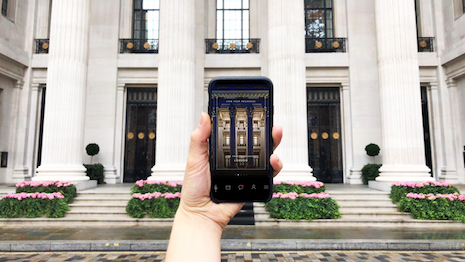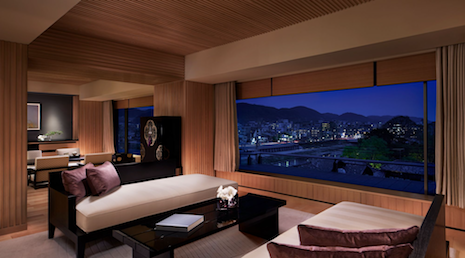 Travelers expect more seamless experiences in the 2020s. Image credit: Agoda
Travelers expect more seamless experiences in the 2020s. Image credit: Agoda
Consumers expect travel to become seamless due to advancements in technology over the next decade, according to a new report from digital travel platform Agoda.
Expectations for the 2020s include hotel check-in through mobile applications and passport-free travel. Consumers are also looking to increase how much they travel, while making choices that are more sustainable for the environment.
Agoda’s findings are based on an online survey of more than 16,000 adult respondents from countries including Australia, China, South Korea, the United Kingdom and the United States.
Travel frontiers
Travelers from Southeast Asia differ from American and British respondents in their expectations for the next 10 years.
Twenty percent of U.S. and U.K. travelers expect a passport-free future, compared to 41 percent of Australian travelers. Singaporeans are the most optimistic about passport-free travel at 50 percent, followed by Vietnamese, Filipino and Chinese respondents.
A third of travelers from the U.S. and U.K. believe they will book all of their travel through a single mobile app by the end of the decade, while Southeast Asians are more optimistic with about 50 percent believing that behavior will become commonplace.
 Guests can now plan itineraries on the Four Seasons app. Image credit: Four Seasons
About half of Southeast Asian travelers, including 58 percent of Malaysian respondents, believe mobile check-in – allowing them to download their room keys and skip the registration desk – will become the norm. Only about four in 10 U.S. and U.K. travelers agree.
Luxury hospitality brands are already enhancing their mobile offerings to improve travelers’ experiences.
Shangri-La says it is the first hospitality group to offer a range of electronic services within the WeChat platforms. The WeChat mini program allows guests to search, book, check in and out and pay for their stays at Shangri-La locations (see story).
The updated Four Seasons app allows guests to manage their experience from start to finish, including booking spa treatments, requesting room service or making dinner reservations. It also enhances Four Seasons Chat as the hospitality brand looks to make stays more seamless for tech-savvy travelers (see story).
While improving technology, including Web sites and mobile apps, should be a priority for hospitality brands, it is unlikely digital tools will displace in-person service. According to research from Amadeus, two-thirds of guests prefer interacting with hotel staff over using self-service technology (see story).
Globally, 40 percent of respondents want to travel more domestically and 35 percent want to increase their international travel.
Guests can now plan itineraries on the Four Seasons app. Image credit: Four Seasons
About half of Southeast Asian travelers, including 58 percent of Malaysian respondents, believe mobile check-in – allowing them to download their room keys and skip the registration desk – will become the norm. Only about four in 10 U.S. and U.K. travelers agree.
Luxury hospitality brands are already enhancing their mobile offerings to improve travelers’ experiences.
Shangri-La says it is the first hospitality group to offer a range of electronic services within the WeChat platforms. The WeChat mini program allows guests to search, book, check in and out and pay for their stays at Shangri-La locations (see story).
The updated Four Seasons app allows guests to manage their experience from start to finish, including booking spa treatments, requesting room service or making dinner reservations. It also enhances Four Seasons Chat as the hospitality brand looks to make stays more seamless for tech-savvy travelers (see story).
While improving technology, including Web sites and mobile apps, should be a priority for hospitality brands, it is unlikely digital tools will displace in-person service. According to research from Amadeus, two-thirds of guests prefer interacting with hotel staff over using self-service technology (see story).
Globally, 40 percent of respondents want to travel more domestically and 35 percent want to increase their international travel.
 Known for its Shinto shrine and cosmopolitan environment, Kyoto was named the top travel destination. Image credit: Ritz-Carlton
Reflecting this trend, Kyoto, Japan was named the top destination, including being ranked first among Chinese and Japanese travelers. Kyoto was also a top-three destination for travelers from Singapore, the Philippines, U.K., Thailand, Taiwan and Vietnam.
New York topped the the wish lists of American and British travelers and was also a popular choice for Australians, Japanese and South Koreans.
Other desirable destinations included Bangkok, Bali, London and Sydney.
Sustainable travel
Agoda also found that 26 percent of all respondents want to make more environmentally-friendly travel choices.
Nearly four in 10 Indonesians are emphasizing sustainable tourism, followed by 36 percent of Vietnamese and Malaysian travelers. Less than 15 percent of U.S. and Japanese travelers are looking to focus on eco-friendly travel.
Sustainable travel can involve many things, such as reducing pollution or avoiding sites facing over-tourism.
Contemporary travelers are becoming more aware that the growth of tourism can have a negative impact on the environment. Increased tourist traffic can damage natural habitats, and historic sites were not meant to withstand millions of visitors.
According to a recent survey by Booking.com, 54 percent of global travelers want to play a part in reducing over-tourism, while 51 percent would swap their original destination for a similar alternative if it would have a positive environmental or social impact.
As such, travelers are starting to choose secondary and tertiary destinations that still provide the same charm and culture as their better-known counterparts to alleviate these issues (see story).
Luxury hotel brands are also introducing more sustainability initiatives that prove hospitality does not need to sacrifice upscale experiences to achieve ecological and social responsibility. Many sustainability initiatives in hospitality revolve around eliminating single-use plastic such as straws and toiletries, or opting for more locally-sourced or organic ingredients for hotel restaurants.
Hospitality groups such as the Peninsula Hotel and Marriott International have been increasingly transparent with their guests about their newest sustainability efforts, which aim to benefit people and the planet. Environmental efforts do ultimately impact brands’ bottom lines, whether through additional expenses or appealing to more travelers (see story).
Known for its Shinto shrine and cosmopolitan environment, Kyoto was named the top travel destination. Image credit: Ritz-Carlton
Reflecting this trend, Kyoto, Japan was named the top destination, including being ranked first among Chinese and Japanese travelers. Kyoto was also a top-three destination for travelers from Singapore, the Philippines, U.K., Thailand, Taiwan and Vietnam.
New York topped the the wish lists of American and British travelers and was also a popular choice for Australians, Japanese and South Koreans.
Other desirable destinations included Bangkok, Bali, London and Sydney.
Sustainable travel
Agoda also found that 26 percent of all respondents want to make more environmentally-friendly travel choices.
Nearly four in 10 Indonesians are emphasizing sustainable tourism, followed by 36 percent of Vietnamese and Malaysian travelers. Less than 15 percent of U.S. and Japanese travelers are looking to focus on eco-friendly travel.
Sustainable travel can involve many things, such as reducing pollution or avoiding sites facing over-tourism.
Contemporary travelers are becoming more aware that the growth of tourism can have a negative impact on the environment. Increased tourist traffic can damage natural habitats, and historic sites were not meant to withstand millions of visitors.
According to a recent survey by Booking.com, 54 percent of global travelers want to play a part in reducing over-tourism, while 51 percent would swap their original destination for a similar alternative if it would have a positive environmental or social impact.
As such, travelers are starting to choose secondary and tertiary destinations that still provide the same charm and culture as their better-known counterparts to alleviate these issues (see story).
Luxury hotel brands are also introducing more sustainability initiatives that prove hospitality does not need to sacrifice upscale experiences to achieve ecological and social responsibility. Many sustainability initiatives in hospitality revolve around eliminating single-use plastic such as straws and toiletries, or opting for more locally-sourced or organic ingredients for hotel restaurants.
Hospitality groups such as the Peninsula Hotel and Marriott International have been increasingly transparent with their guests about their newest sustainability efforts, which aim to benefit people and the planet. Environmental efforts do ultimately impact brands’ bottom lines, whether through additional expenses or appealing to more travelers (see story).
